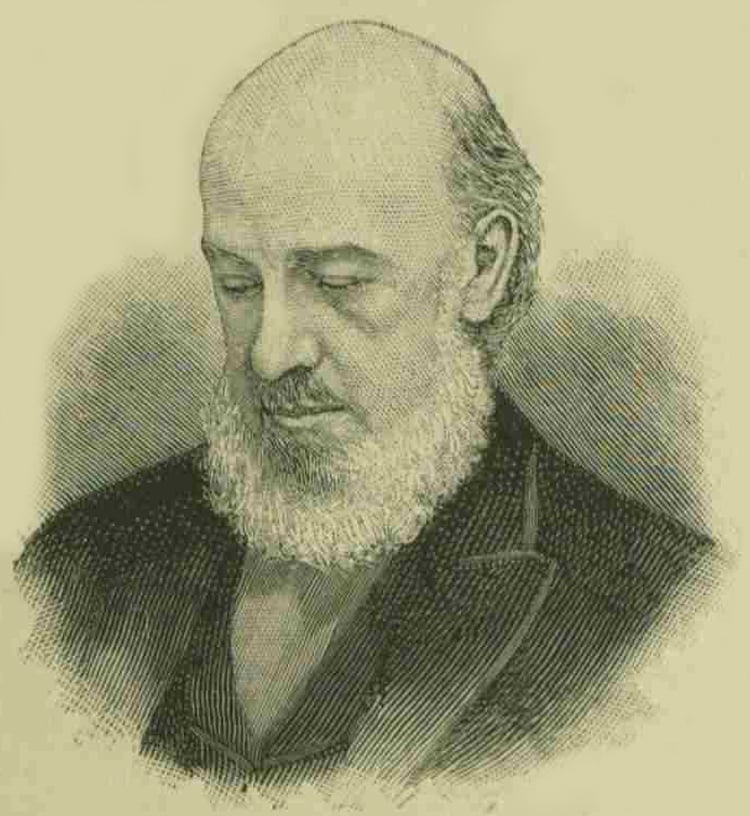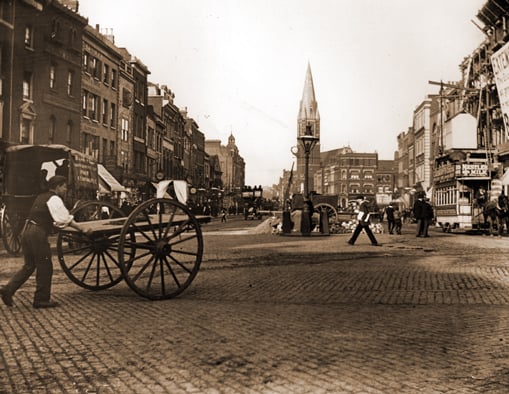There was little to save those Victorian citizens of the East End who, by a twist of fate or a conspiracy of circumstances, found themselves cast onto the scrapheap of life in London.
There were numerous charitable institutions and local individuals who tried their hardest to cater to the needs of the outcast poor, but the charity that they offered often came with strings attached.
One person who was greatly respected for his charitable endeavours was the Reverend Samuel Barnett, the vicar of St Jude’s Church on Commercial Street, and his name was frequently put forward by newspaper commentators as a force for good in the area.

SYMPATHY FOR THE VICTIM
However, even the saintly Reverend Barnett could occasionally act in a decidedly un-Christian was towards the deserving poor, as evidenced by the following article, which appeared in The East London Observer on Saturday, 28th April, 1877.
It has to be said that, unusually for him, Barnett doesn’t emerge from the article in anything like a glowing light.
Indeed, reading the article, you really do come away feeling the utmost sympathy for the poor man, whose plight the article exposed, whilst, at the same time, feeling contemptuous of the high-handed manner in which the local Board of Guardians felt justified in acting.
The article read:-
THE TREATMENT OF THE POOR IN WHITECHAPEL
“In more than one instance we have had occasion to allude to the hard and fast line of policy adopted by the Whitechapel Guardians in dealing with the poor, and, on last Monday week, a case was brought before Mr. De Rutzen which will serve to illustrate our meaning in the public interest.
Thomas Vallance, a namesake of the Clerk to the Board to which we have referred, was prosecuted for refusing to perform the task of labour given to him.
On the case being heard, it was stated that there was some sort of relationship between the defendant and the Clerk to the Guardians, who certainly bears the same name, and that a degree of spite was manifested by the prosecution on this account, as there were many more suitable candidates for the dock at the police-court now in the South Grove Workhouse than the one selected.
HE HAD HELD A RESPECTABLE POSITION
It furthermore appeared that the accused had occupied a different position in society, having been the proprietor of public-houses both in and out of the district, and, in that respect, he had been a large contributor to the rates.
He was by trade a tailor’s cutter, and had been employed in that capacity at the establishment of Messrs. Gardiner, at the junction of Commercial-road and High-street, Whitechapel.

HE HAD PERFORMED HIS TASKS
Since his confinement in the Workhouse, it was deposed that he had performed every task allotted to him, and that on one occasion he had called for the doctor, who found him suffering from a particularly painful disease, necessitating the provision of surgical appliances.
THE REVEREND SAMUEL BARNETT
The charge was founded on the refusal of employment procured for him by the Rev. S. A. Barnett, the incumbent of St. Jude’s, also a member of the Whitechapel Board of Guardians, and distinguished as an advocate of the Charity Organisation Society.
A DEGRADING OFFER
It was proposed that the unfortunate man should take a situation in the shoe black brigade at twelve shillings, possibly, per week.
We say “possibly,” Vallance being fifty-six years of age, and suffering from a complaint which ill-fitted him to kneel on the pavement, but added to this was the degradation that he was to be compelled to do this in front of the very shop where he had been employed as a cutter, and in the vicinity of the house where he had formally dwelt as a respectable tradesman.
The case was of such a peculiar nature that the magistrate twice adjourned it, and ultimately consented to strain the law against the individual only upon pressure from the prosecuting solicitor, prompted by representations from the Local Government Board, of which Messrs. Vallance and Barnett are the representatives.
SENTENCED TO SEVEN DAYS
When the case came before the magistrate this week, this poor victim of ill-fortune and surname was sentenced to seven days’ imprisonment, without the option of a fine, because he declined to make an exhibition of himself in a neighbourhood where he was well known, and for the satisfaction of the Rev. S. Barnett, of St. Jude’s, and Mr. Wm. Vallance, the clerk to the Whitechapel Board of Guardians.
FREQUENTLY IN THE WORKHOUSE
It was said that the defendant had been an inmate of the Whitechapel Workhouse on nine previous occasions; but, instead of this being placed to his detriment, to our thinking it is much to his credit, for it proves that he has struggled to exist outside the walls of the parochial establishment.
NO SYMPATHY FROM THE GUARDIANS
The facts, as stated by us, are a singular comment on the decision of the Whitechapel Board of Guardians to exclude the Press from their meetings, and, if true, indicate a want of feeling for an invalid we should have hesitated to credit them with but for the facts as given.
Notwithstanding the beautiful and charitable services of the Church of England, with which Mr. Barnett must be well acquainted, and the humane intentions of the Act “43rd of Elizabeth,” which are certainly not unknown to Mr. Vallance, all can say, with such a case before us, is, “From all such Guardians, good Lord deliver us!”
